Biobased resources
A major goal of the bioeconomy is to use larger quantities of biobased raw materials to produce energy, transport fuels and feedstock for industrial processes. This requires detailed analyses, simulations, concepts and processes. Major focus needs to be placed on issues relating to crop production, biomass potentials, land surface requirements, conversion technologies, biobased value creation networks and food security. Agriculture, forestry, waste management and the industry in general will need to work in concert as far as the raw materials all of them use or deal with are concerned.
-
Sustainable construction - 28/03/2023

A switch to sustainable and circular construction concepts is needed to significantly reduce greenhouse gas emissions in the construction sector. At the German National Garden Show (Bundesgartenschau) in Mannheim, FibR GmbH, together with researchers from the Karlsruhe Institute of Technology, will be showcasing two innovative buildings made from flax and willow, renewable raw materials that exemplify possible building concepts of the future.
-
Residual materials with potential - 16/03/2023
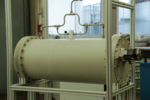
The objective of the PeePower™ BUGA 2023 collaborative research project is to produce green hydrogen and platform chemicals from wastewater. This fits in nicely with BUGA 2023’s (German National Garden Show) four major themes, namely, climate, energy, environment and food security.
-
Think Tank FYI: Agriculture 5.0 - 16/02/2023
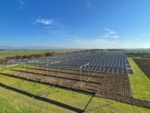
Climate protection, agriculture and biodiversity are closely intertwined. Agriculture 5.0 provides positive guidance, as the Offenburg University of Applied Sciences has demonstrated: agrophotovoltaics (or agrivoltaics), which is currently in vogue in Germany, can be used to generate solar power on high-yield fields. Biomass strips and biochar remove CO2 from the atmosphere. All this improves soil quality and promotes biodiversity.
-
Review - 09/02/2023
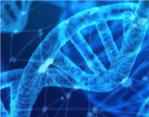
The societal importance of genetic technologies was demonstrated during the coronavirus pandemic, when it was possible to rapidly develop suitable vaccines thanks to genetic engineering methods. As a result, the Fifth Gene Technology Report published in autumn 2021 reads like a validation of many years of work, as well as making it clear that the will to continue the detailed long-term monitoring is very much present.
-
Synergistic effects with microalgae and purple bacteria - 03/02/2023
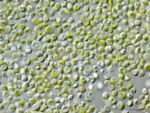
A biorefinery that uses industrial wastewater and residual material streams is being built in Rheinfelden (Baden). It will have two interlinking bioreactors and will synthesize biohydrogen as well as organic basic materials such as carotenoids and proteins. SmartBioH2-BW is a pilot project run by the Urban and Industrial Biorefineries initiative and funded by the Baden-Württemberg Ministry of the Environment, Climate Protection and Energy Sector.
-
Vaccination for plants - 23/01/2023
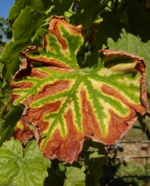
Climate change creates stress. This provides an opportunity for pests to exploit plant weaknesses and reproduce. For the infested plant, this can be catastrophic and often fatal. But instead of continuing to protect harvest yields with toxic substances as before, the transnational DialogProTec project is now taking a completely new approach: researchers want to intervene in the communication between plants and pests to keep them healthy.
-
Valorization of biological materials - 12/01/2023
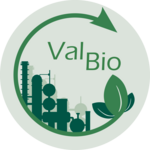
Reducing carbon dioxide emissions and the capture and utilization of CO2 are important steps towards achieving a climate-neutral and sustainable economy. Accordingly, as part of the ValBio-Urban research project, an interdisciplinary team from the University of Stuttgart is developing bioeconomic approaches to solutions that will be implemented with companies from Baden-Württemberg.
-
Start-up 'Innovation Matters' - 19/12/2022
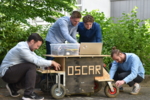
Saffron is one of the most expensive spices in the world, because picking it involves a complex manual process. This treasure therefore comes to us mostly from countries such as Iran with poor working conditions and low wages. A start-up company called Innovation Matters from Baden-Württemberg is now developing a robot-assisted, automated process that will make saffron cultivation attractive in Germany as well as ecological and fair.
Website address: https://www.biooekonomie-bw.de/en/articles/biobased-resources







